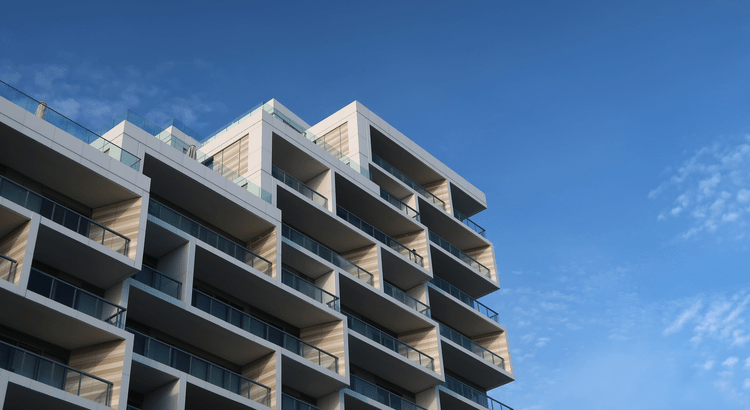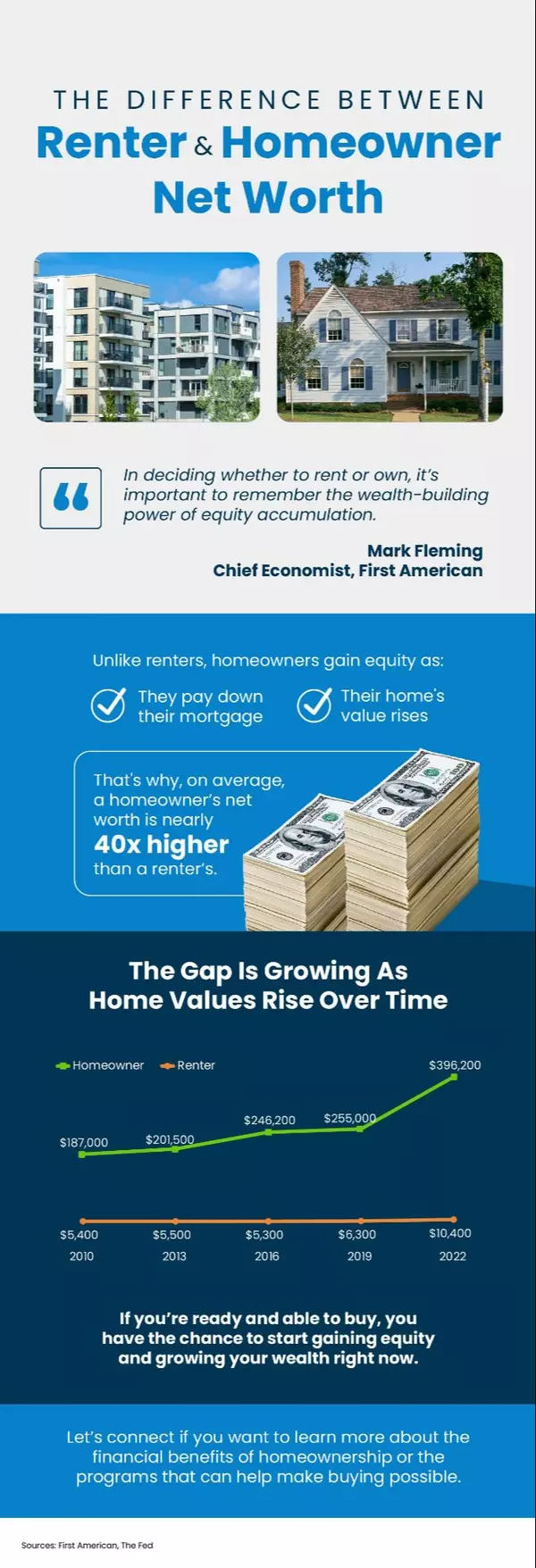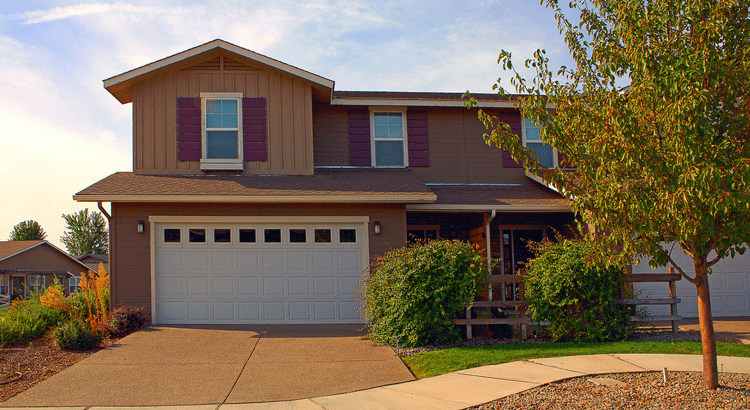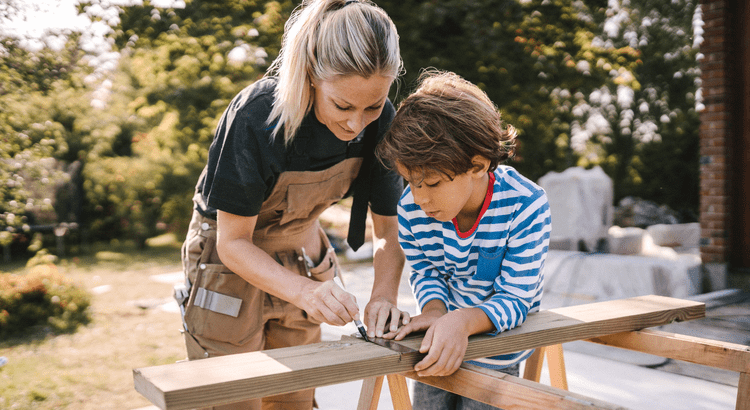
Why a Condo Could Be Your Perfect First Home
Why a Condo Could Be Your Perfect First Home If you’re looking to enter homeownership but are hesitant due to the price of single-family homes, you might want to consider a condominium (condo) or townhome. These types of homes often have a lower barrier to entry, allowing you to start building equity and enjoy the benefits of homeownership sooner. Since they are generally smaller than single-family homes, they can be easier on your budget. While this isn’t always the case, smaller square footage often translates to a lower price tag. As a result, according to the latest data from Realtor.com, condos typically have a lower asking price than single-family homes (see graph below): And here’s some exciting news: builders are increasingly focusing on homes like these. The National Association of Home Builders (NAHB) states: “The share of townhomes being built is at an all-time high.” This means you have a variety of options to consider if you expand your home search to include condos and townhomes. You might even discover something that fits better within your budget. If you're open to a smaller space and want to purchase your first home before the spring rush, incorporating these types of homes into your search could be the solution you need. The Perks of a Condo Lifestyle Living in a condo offers several other benefits, especially for first-time buyers. Here’s a closer look at why condos are appealing: They help you start building equity. When you purchase a condo or townhome, you build equity and increase your net worth as you make mortgage payments and as the value of your condo appreciates over time. They can be low maintenance. Condos are ideal for those who want to own their space without the hassle of mowing the lawn, shoveling snow, or repairing the roof. Your real estate agent can provide insights into any associated fees and details for the condos you’re considering. They typically come with a variety of amenities. Your condo may offer access to features like a pool, dog park, or parking, and the best part is that you won’t have to manage any of these amenities. They foster a sense of community. Buying a condo means living near others, which is beneficial if you’re looking for a more connected environment. Many communities organize fun events such as barbecues and parties to help cultivate a sense of connection among residents. Remember, your first home doesn’t have to be the one you stay in forever. The key is to get your foot in the door as a homeowner so you can begin building equity. Later, that equity can assist you in purchasing another property if you desire something different. Ultimately, owning and living in a condo or townhome is a lifestyle choice. If you want to determine if it’s the right fit for you, reach out to a local real estate agent. Bottom Line Ready to find a home that aligns with your goals? A condo could be the perfect choice for your first home purchase. Let’s connect today to begin your search.

Buying Beats Renting in These Top Cities
Buying Beats Renting in These Top Cities According to a recent study, in 22 of the top 50 metros, the monthly mortgage payment is lower than the rent payment. It’s essential to work with a professional who can help you analyze the numbers and determine how your city compares. This could be your chance to move past renting for good. If you’d like to explore which option makes the most sense in our area, let’s do the math together.

How Much Does It Cost To Sell My House?
How Much Does It Cost To Sell My House? If you’re considering selling your house, you’re likely wondering about the associated costs. The final amount will depend on several factors, such as the offer you accept, whether you assist with your buyer’s closing costs, how many repairs you decide to make, and more. To provide you with a rough idea of what to expect, here’s some information on a few of the expenses you should be prepared for (see graph below): Here’s something that helps put those costs into perspective: most homeowners today have built up a substantial amount of equity in their homes, which means they stand to gain significantly when they sell. Chances are, you do too. This equity can help quickly offset selling costs, and you may even have enough left over to contribute toward your next home purchase. Let’s explore a few of the costs from the graph above to provide more context on what they encompass and where you might be able to save some money, when it makes sense. Closing Costs and Commission These are the fees you'll encounter at the closing table to cover different aspects of the sale. You'll have your own closing costs, and you may also choose to cover some of the buyer’s costs as a concession. As U.S. News Real Estate explains: “Closing costs are fees that are paid to finalize the transaction and transfer ownership of the home to the buyer . . . Sellers can expect to pay 2% to 4% of the sale price of the home in fees and taxes on top of the agent commission. Based on the national median home sale price, this means that closing costs in 2023 for sellers are about $7,740 to $15,480. . .” Taxes will vary by state, and agent commissions depend on what you agree upon in advance. It's important to remember that the figures in the chart above are just examples, not precise amounts. Additionally, if you've been paying into items like property taxes, mortgage escrow, etc., as part of your current mortgage payments, you may receive a credit back at closing that can help offset some of these selling expenses. Pre-Listing Inspection and Repairs One optional step some sellers consider is getting a pre-listing inspection. This gives you insight into potential issues that may arise during the buyer’s inspection—issues for which a buyer might request a credit (or concession) later on. Having this inspection allows you to proactively address any repairs before listing, ensuring your home is ready to impress from the start. If you decide to skip this step, an agent can still assist you. They can provide advice on aspects like paint colors, minor cosmetic repairs, what buyers are looking for, and whether it’s worth addressing anything else in advance. This guidance will help ensure you're investing money in areas that are most likely to yield a solid return on your investment. Home Staging As inventory increases, you may want to take some additional steps to ensure your house stands out. Staging is an optional strategy that can help your home show well. This might involve bringing in rental furniture if the house is vacant or adding art to create a warmer atmosphere. Some staging can even be done virtually after the photos are taken. But what is the typical cost? According to Bankrate: “Home sellers typically pay somewhere between $782 and $2,817 in home staging costs . . . but the price tag can vary widely.” If you choose to skip this step, you can rely on your agent’s advice regarding what looks good and what may appear cluttered. A great agent will offer suggestions such as removing a chair to improve the flow of a room, adding a rug to create warmth in a space, or taking down photographs to de-personalize certain areas. Why Leaning on an Agent Is Key If you’re looking to reduce your costs, you have options. However, be cautious about where you make cuts. While you might be able to forgo staging or a pre-listing inspection since those are optional, it’s important not to skimp on hiring a professional. An agent is your key expert throughout the transaction. They’ll provide personalized advice at every stage, including tips on staging the house and which repairs to prioritize. This can help you avoid the expense of hiring an outside stager or paying for a pre-listing inspection. But that’s not the only way your agent adds value. They’ll also develop customized marketing and pricing strategies that showcase your home’s best features and any improvements you’ve made to prepare it for sale. This can actually help your house sell for more in the long run. Bottom Line Want a clearer idea of what to expect when selling your house? Let’s have a conversation and go through it together.

Two Reasons Why the Housing Market Won’t Crash
Two Reasons Why the Housing Market Won’t Crash You may have heard recent discussions about the economy and the possibility of a recession. It's understandable that this kind of chatter can make some people anxious about a potential housing market crash. You might be one of them. However, here’s the good news: there’s no need to panic. The housing market is not poised for a crash right now. Real estate journalist Michele Lerner states: “A housing market crash happens when home values plummet due to a lack of demand for homes or an oversupply.” Keeping that definition in mind, here are two reasons why this isn't likely to happen anytime soon. 1. Demand for Homes Is Higher than Supply One of the primary reasons the housing market crashed in 2008 was an oversupply of homes. However, today’s situation is quite different. A general rule of thumb is that a balanced market has a six-month supply of homes. A higher number indicates that supply exceeds demand, while a lower number suggests that demand surpasses supply. The graph below uses data from NAR to provide context for today’s market conditions: The graph compares housing supply across three different time periods. The red bar indicates there were 13 months of supply before the 2008 crisis, which was excessively high. The gray bar represents a balanced market with six months of supply for context. The blue bar shows that there are currently only 4.2 months of supply. In simple terms, there are more buyers looking for homes than there are homes available to buy right now. This means that demand is greater than supply. When this occurs, home prices tend to remain stable or even rise—the opposite of a housing market crash. It's important to recognize that inventory levels vary from one market to another. Some areas may have a more balanced supply, while others might experience a slight oversupply, which can affect local prices. However, most markets are still facing a shortage of homes. Lawrence Yun, Chief Economist at the National Association of Realtors (NAR), states: “We simply don’t have enough inventory. Will some markets see a price decline? Yes. [But] with the supply not being there, the repeat of a 30 percent price decline is highly, highly unlikely.” 2. Unemployment Is Still Low When people are unemployed, they are more likely to struggle with their mortgage payments, which can lead to selling or facing foreclosure. This was a significant issue during the 2008 financial crisis. However, today, the employment situation is much more stable (see graph below): Once again, this graph illustrates three different time periods, but this one focuses on the unemployment rate. The red bar indicates the 2008 financial crisis, during which unemployment was very high at 8.3%. The gray bar represents the 75-year average of 5.7%. The blue bar shows the current unemployment rate, which is significantly lower at just 4.1%. At present, people are working, earning an income, and making their mortgage payments. This stability is one reason why the wave of foreclosures seen in 2008 is unlikely to occur again. Additionally, with so many people employed right now, many are in a position to buy a home, which continues to exert upward pressure on prices. Today’s Housing Market Is Stronger than in 2008 While it’s natural to feel concerned when discussions of a recession and economic uncertainty arise, it’s important to recognize that the housing market is in a far better position than it was in 2008. According to Rick Sharga, Founder and CEO at CJ Patrick Company: “Literally everything is different about today’s housing market dynamics than the conditions that led to the housing crisis.” The demand for homes continues to exceed supply, and unemployment remains low. These are two critical factors that will help prevent the housing market from crashing anytime soon. Bottom Line The housing market is significantly stronger than it was in 2008, but it's essential to keep in mind that real estate is highly localized. Therefore, staying informed about our specific market is always a wise approach. If you have any questions or would like to discuss how these factors are affecting our area, don’t hesitate to reach out.
Categories
Recent Posts










